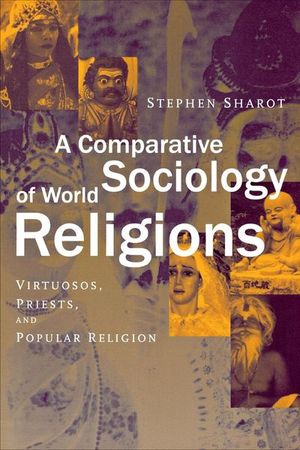A Comparative Sociology of World Religions
Published by NYU Press
“This book belongs in libraries of all sorts. It strikes me as a paradigm of analytical comprehension that should set a standard for the field.” ― Journal for the Scientific Study of Religion
A Comparative Sociology of World Religions presents an analysis of the world's religions, focusing on the differences and interrelationships between religious elites and lay masses. In each case, author Stephen Sharot contextualizes how the relationships between these two religious forms fit within, and are influenced by, the wider socio-political environment.
Sharot introduces and builds upon an analysis of Weber's model of religious action, drawing on Durkheim, Marxist scholars, and the work of contemporary sociologists and anthropolgists. The following chapters each focus on major religious cultures, including Hinduism, Buddhism, Catholicism, Protestantism, Islam, Judaism, and the religions of China and Japan. This ambitious project is the first to offer a comparison of the popular, or folk, forms of religion around the world.
Sharot's accessible introductions to each of the world religions, synthesizing a vast literature on popular religion from sociology, anthropology, and historians of religion, make this book ideal for course use. His comparative approach and original analyses will prove rewarding even for experts on each of the world religions.
“A substantial contribution to the maturation of the comparative sociology of religion.” —Martin Marty, National Book Award winning author of Righteous Empire: The Protestant Experience in America
“A triumphant success of well-marshalled resources, careful argument, and lucid discussion.” —Bryan Wilson, Emeritus Fellow of All Souls, University of Oxford, U.K., and author of Religion in Sociological Perspective
BUY NOW FROM
COMMUNITY REVIEWS

